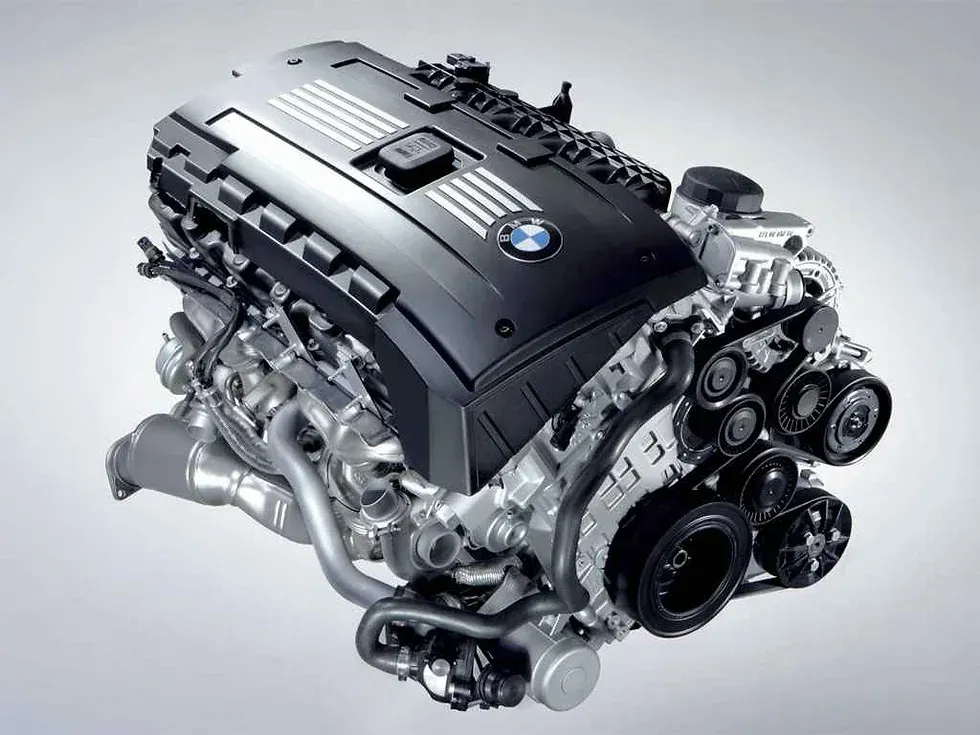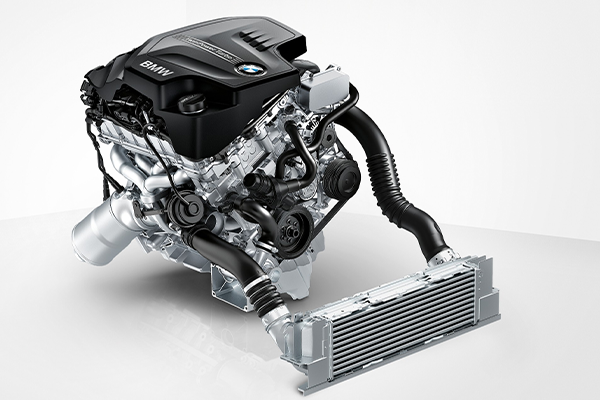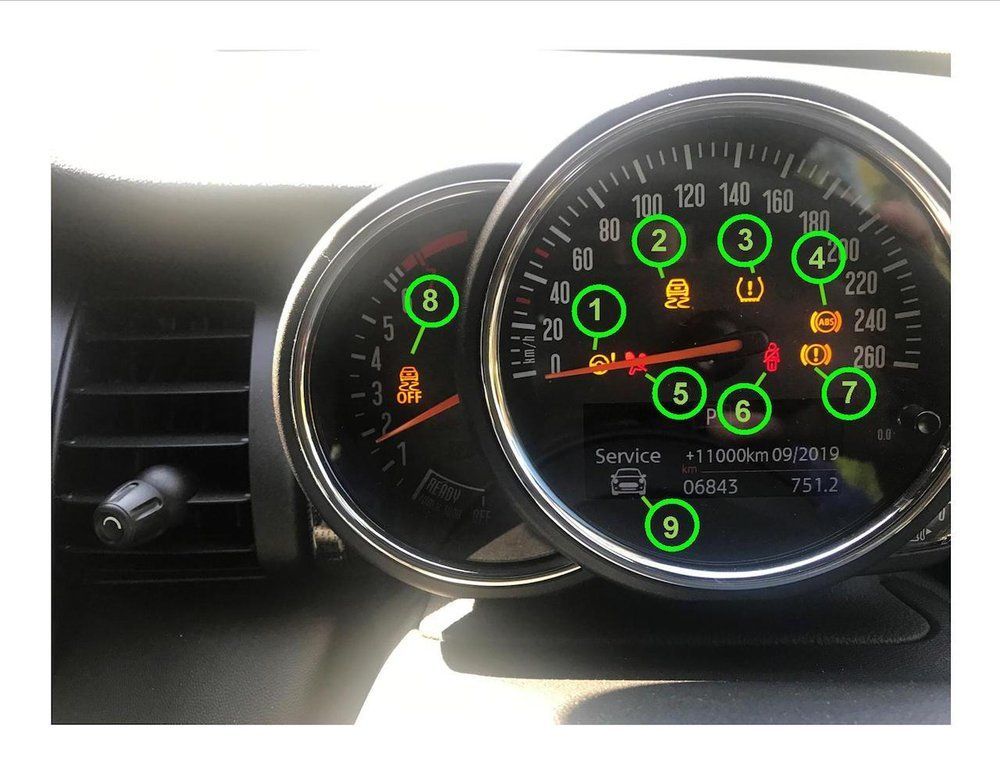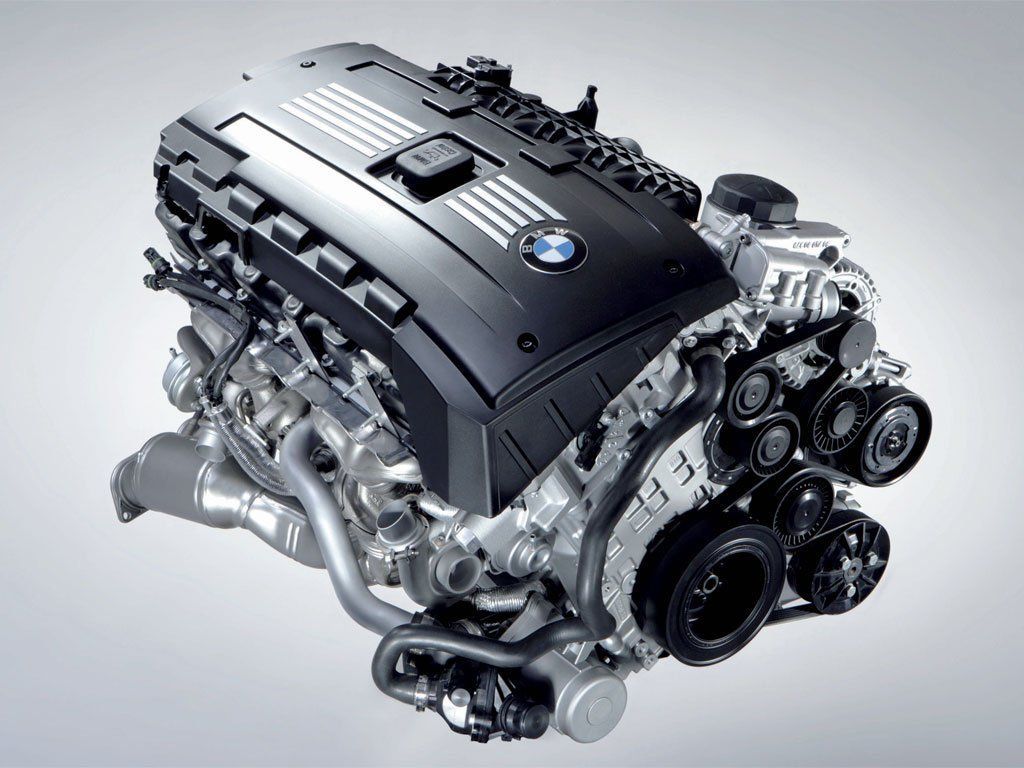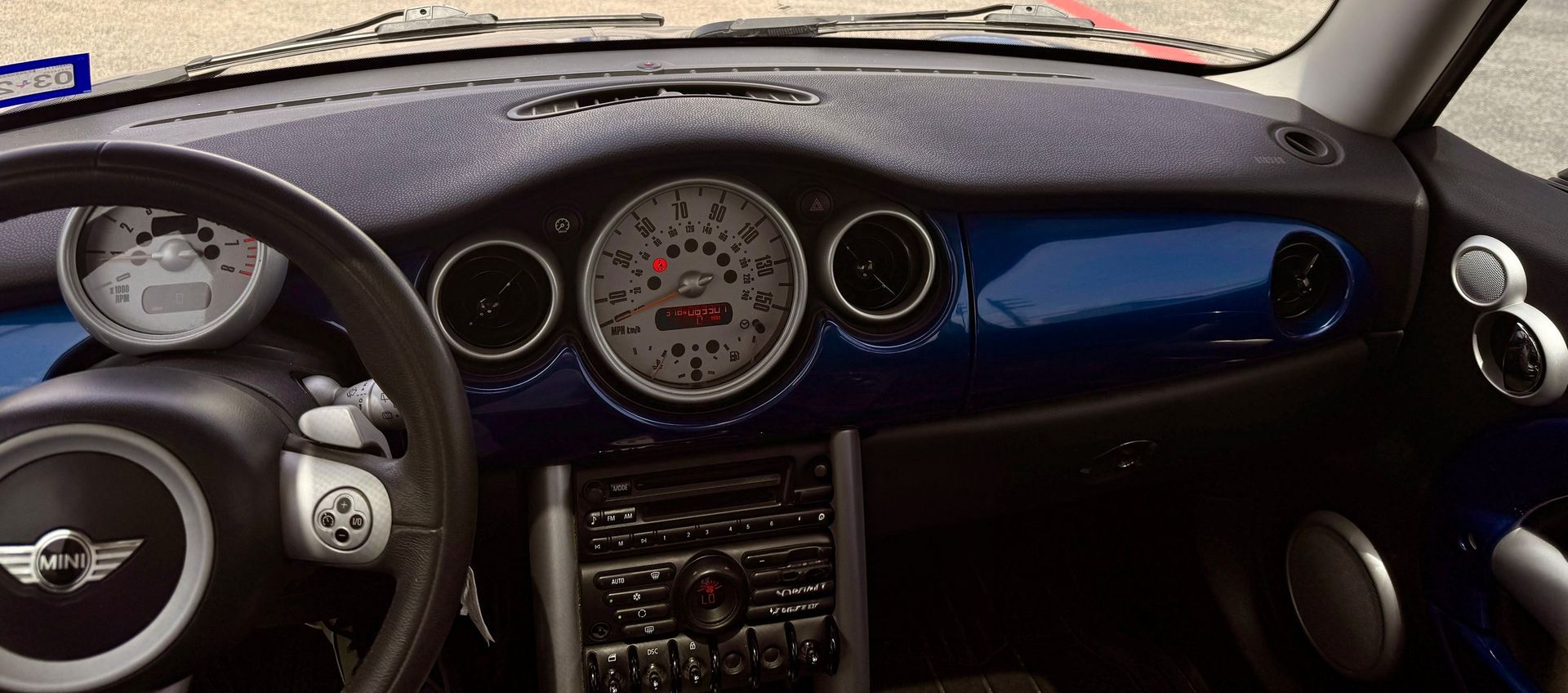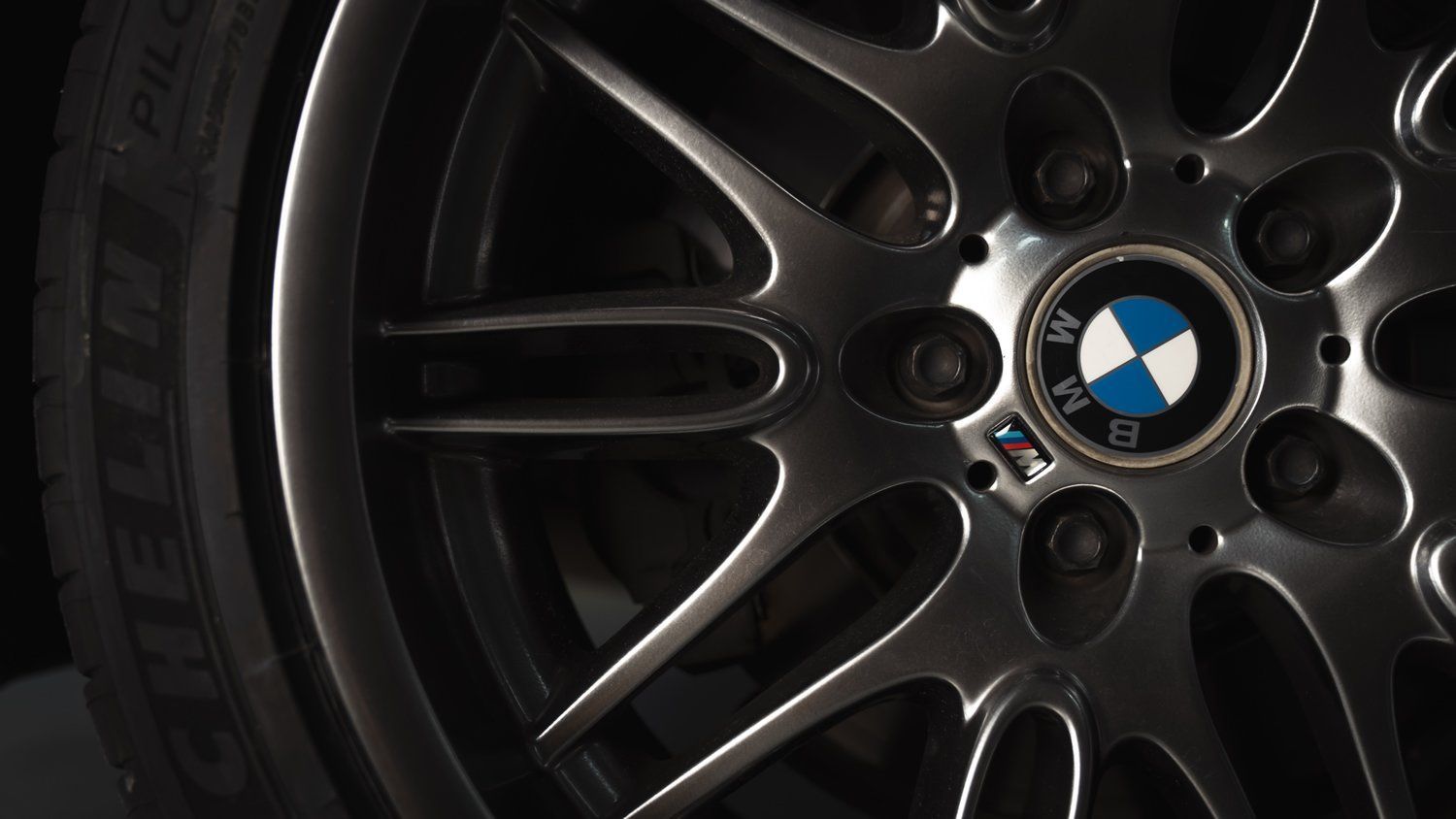Mon - Fri 8:00am - 6:00pm
Give us a call:
Euro Car Electrical System Repair: What You Need to Know
C Deselle • December 20, 2024
Introduction
Owning a European car comes with a unique set of joys and challenges. While these vehicles are renowned for their performance and luxurious features, they also have complex electrical systems that require specialized attention. In this blog post, we will delve into the intricacies of Euro car electrical systems, common issues, and what you need to know about their repair.
Key components of a Euro Car Electrical System include:
Digital Motor Electronics (DME): The ECU is the brain of the car's electrical system. It is the unit that controls all aspects of your vehicle's electrical operations. The DME receives electrical signals from the engine and other components to adjust the vehicle's performance accordingly.
Sensors: European cars are equipped with numerous sensors that monitor different aspects of the vehicle, such as oxygen sensors, ABS (Anti-lock Braking System) sensors, and more. These sensors provide data to the ECU, helping the car operate efficiently and safely.
Wiring and Connectors: The wiring in Euro cars is often more complex than in standard vehicles. High-quality wiring and connectors are used to ensure reliable communication between different components of the electrical system.
Battery and Charging System: Euro cars may have advanced charging systems and high-performance batteries to support the electrical demands of the vehicle. Issues with either the main the battery, the secondary auxiliary battery, or the charging system can lead to various electrical problems.
Infotainment and Electronics: European cars often feature advanced infotainment systems, navigation, and other electronic amenities. The electrical system controls these features, and malfunctions can impact entertainment, communication, and convenience.
Lighting Systems: The lighting systems in Euro cars may include adaptive headlights, LED technology, and other advanced features. These are controlled by the electrical system for optimal functionality and safety.
Climate Control: The electrical system also plays a role in regulating the climate control features of the car, including heating, ventilation, and air conditioning.
Because of the sophisticated technology integrated into European vehicles, the electrical systems are more intricate compared to some other cars. As a result, diagnosing and repairing electrical issues in Euro cars may require specialized knowledge, tools, and equipment. So, it is essential for Euro car owners to be aware of the unique characteristics of their vehicle's electrical system, and seek professional assistance from qualified independent mechanics or repair shops with experience in working with their European vehicle.
Common Electrical Issues in Euro Cars:
Euro cars, known for their advanced technology and sophisticated features, may experience unique electrical issues. While the reliability of these vehicles is generally high, certain common electrical problems may arise. Here are some typical electrical issues that Euro car owners might encounter:
Sensor Malfunctions:
Oxygen Sensors: Malfunctioning oxygen sensors can lead to poor fuel efficiency and increased emissions.
Mass Airflow Sensor (MAF): Issues with the MAF sensor can result in incorrect air-to-fuel ratio, affecting engine performance.
Battery and Charging System Problems:
Faulty Battery: Euro cars often have advanced electrical systems that place a higher demand on the battery. A failing battery can cause starting issues and electrical malfunctions.
Alternator Issues: A malfunctioning alternator can lead to a drained battery and electrical failures.
Faulty Wiring and Connections:
Worn Wiring: Over time, the wiring in Euro cars can degrade, leading to shorts or open circuits.
Loose Connections: Loose or corroded electrical connections can cause intermittent problems and system failures.
DME (Digital Motor Electronics) and ECU (Engine Control Unit) Failures:
Software Issues: Problems with the DME or ECU software can result in performance issues, including poor fuel economy and drivability concerns.
Fuse and Relay Problems:
Blown Fuses: Blown fuses can disrupt power to various electrical components, causing them to fail.
Faulty Relays: Malfunctioning relays can lead to issues with systems such as the fuel pump, cooling fans, or headlights.
Lighting System Issues:
Adaptive Headlight Problems: Euro cars may feature advanced lighting systems that can malfunction, affecting visibility and safety.
LED and Xenon Bulb Failures: High-tech lighting components may require specialized attention when they fail.
Infotainment and Electronics Malfunctions:
Navigation System Glitches: Issues with GPS and navigation systems can occur, impacting the accuracy of maps and directions.
Electrical Gremlins: Unexplained electronic glitches or malfunctions in features like power windows, door locks, or the central control unit.
Climate Control Problems:
Faulty Climate Control Modules: Issues with the climate control system can result in inconsistent heating, ventilation, or air conditioning.
Choosing the Right Repair Shop: When it comes to repairing the electrical system of your Euro car, selecting the right repair shop is crucial. Look for a facility that specializes in European vehicles and employs technicians with experience in handling the intricacies of their electrical systems. Euro cars often require specialized diagnostic equipment and tools, so choosing a shop with the right resources is essential.
Tips for Euro Car Owners:
Regular Maintenance: Keep up with regular maintenance schedules to prevent potential electrical issues. Routine inspections can identify and address minor problems before they escalate.
Address Warning Lights Promptly: If warning lights appear on your dashboard, don't ignore them. They are often indicators of underlying electrical issues that need immediate attention.
Use Genuine Parts: When replacement parts are necessary, opt for genuine or OEM (Original Equipment Manufacturer) parts. This ensures compatibility and reliability, maintaining the integrity of your car's electrical system.
Owning a Euro car can be a thrilling experience, but it comes with the responsibility of caring for its sophisticated electrical system. By understanding the common issues, choosing the right repair shop, and following proactive maintenance practices, you can ensure a smooth and reliable driving experience with your European vehicle. If you are having electrical issues with your Euro Car, schedule an appointment with TMJ Bimmers and get the experts taking care of your ride.
Owning a European car comes with a unique set of joys and challenges. While these vehicles are renowned for their performance and luxurious features, they also have complex electrical systems that require specialized attention. In this blog post, we will delve into the intricacies of Euro car electrical systems, common issues, and what you need to know about their repair.
The Electrical System in Euro cars refers to the electrical components and systems found in European-made automobiles. European cars, often from manufacturers such as BMW, Mercedes-Benz, Audi, Volkswagen, and others, are known for their advanced technology, performance features, and luxurious amenities. The electrical systems in these vehicles play a crucial role in controlling various functions, ensuring optimal performance, and enhancing the overall driving experience.
Digital Motor Electronics (DME): The ECU is the brain of the car's electrical system. It is the unit that controls all aspects of your vehicle's electrical operations. The DME receives electrical signals from the engine and other components to adjust the vehicle's performance accordingly.
Sensors: European cars are equipped with numerous sensors that monitor different aspects of the vehicle, such as oxygen sensors, ABS (Anti-lock Braking System) sensors, and more. These sensors provide data to the ECU, helping the car operate efficiently and safely.
Wiring and Connectors: The wiring in Euro cars is often more complex than in standard vehicles. High-quality wiring and connectors are used to ensure reliable communication between different components of the electrical system.
Battery and Charging System: Euro cars may have advanced charging systems and high-performance batteries to support the electrical demands of the vehicle. Issues with either the main the battery, the secondary auxiliary battery, or the charging system can lead to various electrical problems.
Infotainment and Electronics: European cars often feature advanced infotainment systems, navigation, and other electronic amenities. The electrical system controls these features, and malfunctions can impact entertainment, communication, and convenience.
Lighting Systems: The lighting systems in Euro cars may include adaptive headlights, LED technology, and other advanced features. These are controlled by the electrical system for optimal functionality and safety.
Climate Control: The electrical system also plays a role in regulating the climate control features of the car, including heating, ventilation, and air conditioning.
Because of the sophisticated technology integrated into European vehicles, the electrical systems are more intricate compared to some other cars. As a result, diagnosing and repairing electrical issues in Euro cars may require specialized knowledge, tools, and equipment. So, it is essential for Euro car owners to be aware of the unique characteristics of their vehicle's electrical system, and seek professional assistance from qualified independent mechanics or repair shops with experience in working with their European vehicle.
Common Electrical Issues in Euro Cars:
Euro cars, known for their advanced technology and sophisticated features, may experience unique electrical issues. While the reliability of these vehicles is generally high, certain common electrical problems may arise. Here are some typical electrical issues that Euro car owners might encounter:
Sensor Malfunctions:
Oxygen Sensors: Malfunctioning oxygen sensors can lead to poor fuel efficiency and increased emissions.
Mass Airflow Sensor (MAF): Issues with the MAF sensor can result in incorrect air-to-fuel ratio, affecting engine performance.
Battery and Charging System Problems:
Faulty Battery: Euro cars often have advanced electrical systems that place a higher demand on the battery. A failing battery can cause starting issues and electrical malfunctions.
Alternator Issues: A malfunctioning alternator can lead to a drained battery and electrical failures.
Faulty Wiring and Connections:
Worn Wiring: Over time, the wiring in Euro cars can degrade, leading to shorts or open circuits.
Loose Connections: Loose or corroded electrical connections can cause intermittent problems and system failures.
DME (Digital Motor Electronics) and ECU (Engine Control Unit) Failures:
Software Issues: Problems with the DME or ECU software can result in performance issues, including poor fuel economy and drivability concerns.
Fuse and Relay Problems:
Blown Fuses: Blown fuses can disrupt power to various electrical components, causing them to fail.
Faulty Relays: Malfunctioning relays can lead to issues with systems such as the fuel pump, cooling fans, or headlights.
Lighting System Issues:
Adaptive Headlight Problems: Euro cars may feature advanced lighting systems that can malfunction, affecting visibility and safety.
LED and Xenon Bulb Failures: High-tech lighting components may require specialized attention when they fail.
Infotainment and Electronics Malfunctions:
Navigation System Glitches: Issues with GPS and navigation systems can occur, impacting the accuracy of maps and directions.
Electrical Gremlins: Unexplained electronic glitches or malfunctions in features like power windows, door locks, or the central control unit.
Climate Control Problems:
Faulty Climate Control Modules: Issues with the climate control system can result in inconsistent heating, ventilation, or air conditioning.
Choosing the Right Repair Shop: When it comes to repairing the electrical system of your Euro car, selecting the right repair shop is crucial. Look for a facility that specializes in European vehicles and employs technicians with experience in handling the intricacies of their electrical systems. Euro cars often require specialized diagnostic equipment and tools, so choosing a shop with the right resources is essential.
Tips for Euro Car Owners:
Regular Maintenance: Keep up with regular maintenance schedules to prevent potential electrical issues. Routine inspections can identify and address minor problems before they escalate.
Address Warning Lights Promptly: If warning lights appear on your dashboard, don't ignore them. They are often indicators of underlying electrical issues that need immediate attention.
Use Genuine Parts: When replacement parts are necessary, opt for genuine or OEM (Original Equipment Manufacturer) parts. This ensures compatibility and reliability, maintaining the integrity of your car's electrical system.
Owning a Euro car can be a thrilling experience, but it comes with the responsibility of caring for its sophisticated electrical system. By understanding the common issues, choosing the right repair shop, and following proactive maintenance practices, you can ensure a smooth and reliable driving experience with your European vehicle. If you are having electrical issues with your Euro Car, schedule an appointment with TMJ Bimmers and get the experts taking care of your ride.
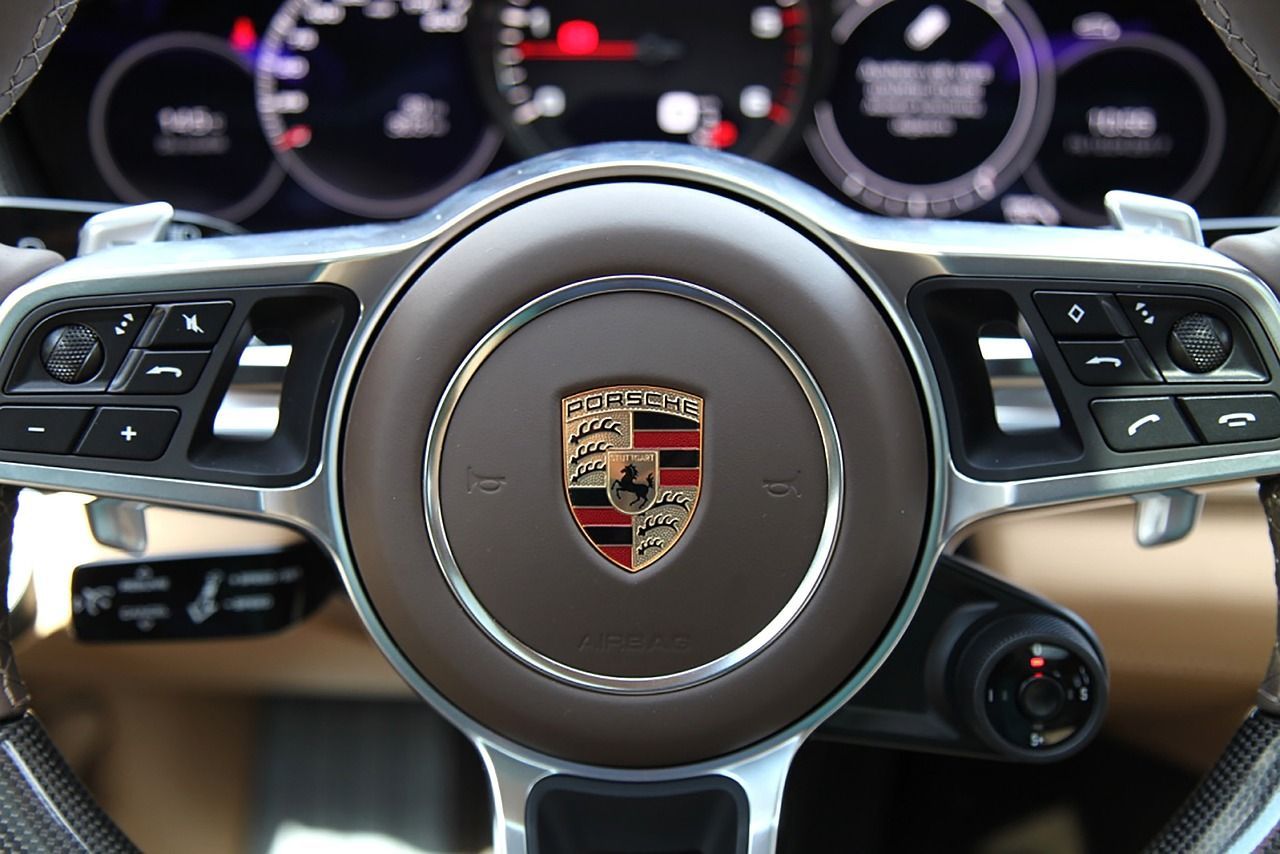
By C Deselle
•
March 28, 2025
As a proud Porsche owner, you know your car is more than just a mode of transportation—it’s a masterpiece of engineering, performance, and luxury. However, like any high-performance vehicle, your Porsche is equipped with a variety of warning lights on the dashboard designed to keep you informed about its health. Understanding these lights is crucial for maintaining your Porsche in peak condition. This guide will walk you through the most common Porsche warning lights, explain what they mean, and provide guidance on the necessary actions to take when they appear. Why Warning Lights Matter Warning lights serve as your Porsche’s way of communicating potential issues, ranging from minor concerns to critical problems requiring immediate attention. These alerts can range from simple reminders, such as a low fuel warning, to serious issues like engine or braking system malfunctions. Ignoring these warnings can lead to costly repairs or even hazardous situations on the road. By understanding these indicators, you can take the appropriate actions to ensure your Porsche continues to run smoothly and efficiently. 1. Check Engine Light (CEL) What It Looks Like: A yellow or amber outline of an engine, sometimes with the word "CHECK." What It Means: This light indicates that the vehicle’s onboard diagnostics system has detected an issue. The cause could range from something minor, like a loose gas cap, to more serious problems, such as engine misfires, faulty oxygen sensors, or catalytic converter issues. What to Do: If the light is steady, schedule a diagnostic check as soon as possible. If it's flashing, it indicates a severe issue that requires immediate attention—pull over and have your Porsche towed to a repair shop to prevent engine damage. 2. Battery Warning Light What It Looks Like: A red battery icon. What It Means: This indicates that your Porsche’s battery is not charging properly, which could be due to a failing alternator, a weak battery, or corroded connections. What to Do: Reduce electrical usage and drive to a service center immediately. If the battery is completely discharged, your Porsche may not restart. 3. Brake Warning Light What It Looks Like: A red circle with an exclamation point inside or the word "BRAKE." What It Means: This could indicate low brake fluid levels, worn brake pads, or an issue with the braking system. What to Do: Check if your parking brake is engaged. If the light remains on, have your brakes inspected immediately at TMJ Bimmers to ensure safety. 4. Oil Pressure Warning Light What It Looks Like: A red oil can symbol with a drip. What It Means: Low oil pressure, which may result from low oil levels, a failing oil pump, or an oil leak. What to Do: Pull over immediately and check the oil level. If adding oil doesn’t resolve the issue, have your Porsche towed to a service center to prevent engine damage. 5. ABS (Anti-lock Braking System) Warning Light What It Looks Like: A yellow or amber circle with the letters "ABS." What It Means: There is an issue with your Porsche’s anti-lock braking system, which helps maintain control during hard braking. What to Do: While regular brakes may still function, have the ABS system inspected as soon as possible to avoid compromised braking performance. 6. Tire Pressure Monitoring System (TPMS) Light What It Looks Like: An exclamation point inside a horseshoe shape. What It Means: One or more tires are underinflated, which can impact handling and fuel efficiency. What to Do: Check tire pressure and inflate to the recommended levels. If the light persists, have the TPMS system checked. 7. Coolant Temperature Warning Light What It Looks Like: A red thermometer symbol. What It Means: Your Porsche's engine is overheating, possibly due to low coolant levels or radiator issues. What to Do: Pull over immediately, turn off the engine, and allow it to cool. Check coolant levels and top off if needed, but seek professional service if the problem persists. 8. Airbag Warning Light What It Looks Like: A person with an airbag in front. What It Means: There is a malfunction in the airbag system, which may prevent airbags from deploying properly in an accident. What to Do: Have the system inspected immediately to ensure safety. 9. Engine Temperature Warning Light What It Looks Like: A red thermometer submerged in liquid. What It Means: The engine is running hotter than normal, often due to low coolant, a failing water pump, or a faulty thermostat. What to Do: Pull over, allow the engine to cool, and check coolant levels. If the light stays on, have the vehicle towed to TMJ Bimmers to avoid potentially catastrophic engine damage. 10. Steering Wheel Warning Light What It Looks Like: A yellow or red steering wheel icon. What It Means: A problem with the power steering system, making steering more difficult. What to Do: Drive cautiously and schedule a service appointment. 11. Transmission Warning Light What It Looks Like: A gear with an exclamation point or the word "TRANS." What It Means: There is a problem with the transmission system, such as low fluid levels or mechanical failure. What to Do: Avoid hard accelerations and schedule a transmission inspection immediately. 12. Fuel Indicator Light What It Looks Like: A yellow gas pump icon. What It Means: Your fuel level is low, usually at 10-15% capacity. What to Do: Refuel as soon as possible to prevent running out and avoid damage to the fuel pump. Why Choose TMJ Porsche Specialists for Diagnostic Testing? While some warning lights may have simple solutions, others require expert diagnosis and repair. Porsches are complex, high-performance vehicles that demand specialized care. At TMJ Bimmers, we have the expertise and advanced equipment to accurately diagnose and repair any Porsche issues. Our team understands Porsche-specific systems, ensuring your vehicle receives the best possible care. Conclusion Understanding your Porsche’s warning lights is essential for keeping your vehicle in peak condition. By addressing these alerts promptly, you can prevent minor issues from escalating into costly repairs. If you’re unsure about a warning light or need expert advice, contact TMJ Bimmers Euro Car Care at 713.384.2273. We’re here to ensure your Porsche remains a top-performing machine on the road.

By C Deselle
•
March 14, 2025
BMW is a brand synonymous with performance, luxury, and driving pleasure. But for those who crave an extra level of speed, precision, and adrenaline, BMW’s M-Series—often called “M Cars”—stands at the pinnacle of automotive excellence. If you’ve ever wondered what makes an M Car different from a standard BMW, this article will dive into its history, origins, various models, and what sets these high-performance machines apart. The Origin of BMW M Cars BMW M, short for BMW Motorsport GmbH, was established in 1972 as the performance division of BMW. Originally, the M division was created to support BMW’s racing efforts, developing high-performance engines, chassis, and aerodynamics to compete in various motorsport events. The first major success of BMW M was in racing, particularly with the legendary BMW 3.0 CSL, a car that dominated the European Touring Car Championship in the 1970s. The success of BMW’s racing program led to the idea of bringing motorsport technology to road cars, and thus, the M Series was born. The First M Car: The BMW M1 (1978) The first-ever BMW M car was the BMW M1 , introduced in 1978. Designed as a mid-engine supercar, the M1 was built for homologation purposes—meaning BMW had to produce road-legal versions of the car to compete in motorsport events. It featured a 3.5L inline-six engine producing 273 horsepower, an impressive figure for its time. However, due to production difficulties, only 453 M1s were ever made, making it one of the rarest and most collectible BMWs today. Evolution of the M Series: A Look at the Key Models After the M1, BMW shifted its focus to high-performance versions of its standard production models. Let’s take a look at some of the most iconic M cars throughout history. BMW M3 (E30, 1986-Present) The BMW M3 is arguably the most famous M car. It debuted in 1986 with the E30 generation as a homologation special for DTM (Deutsche Tourenwagen Masters) racing. The E30 M3 featured a high-revving 2.3L four-cylinder engine and a lightweight chassis, making it one of the best-handling sports sedans of its time. Since then, the M3 has evolved through multiple generations, with each one bringing more power and advanced technology. Modern M3s feature turbocharged inline-six engines and optional all-wheel drive, but they retain the spirit of precision and performance that made the original legendary. BMW M5 (E28, 1984-Present) The M5 is the high-performance version of the BMW 5 Series and is known as one of the fastest sedans in the world. The first M5 (E28) arrived in 1984 with a 3.5L inline-six engine producing 282 horsepower, making it the fastest production sedan of its time. Over the years, the M5 has continued to push the limits of performance sedans. The E60 M5 (2005-2010) is particularly notable for its 5.0L V10 engine, which revved up to 8,250 RPM and produced an exhilarating exhaust note. Today’s M5 models use twin-turbocharged V8 engines, offering immense power while still providing everyday luxury and comfort. BMW M4 (F82, 2014-Present) Introduced in 2014, the M4 replaced the M3 Coupe as the high-performance two-door variant. It featured a 3.0L twin-turbocharged inline-six engine, producing over 400 horsepower. The latest G82 M4 offers even more power, aggressive styling, and an available all-wheel-drive system for enhanced traction and performance. Other Notable M Cars BMW M2 – A compact, high-performance coupe that delivers the raw driving pleasure of early M3 models. BMW M8 – A luxury grand tourer with supercar levels of power and performance. BMW X5M/X6M – High-performance SUVs that blend speed with practicality. What Makes an M Car Special? While a standard BMW is already a great driver’s car, M Cars take it to another level. Here’s what makes them superior: 1. More Powerful Engines M Cars receive specially tuned engines that deliver significantly more power and performance. These engines often feature lightweight components, advanced cooling systems, and higher redlines compared to their standard BMW counterparts. 2. Enhanced Suspension & Handling BMW M models come with sportier suspensions, upgraded brakes, and precise steering. Many models also offer adaptive dampers, allowing drivers to adjust ride stiffness for daily comfort or track-ready performance. 3. Aerodynamic & Lightweight Construction M Cars often feature aggressive bodywork, including larger air intakes, rear spoilers, and carbon fiber components to improve aerodynamics and reduce weight. 4. Unique M Features & Design From M-specific steering wheels and sport seats to customizable drive modes and exclusive badges, BMW M models are designed to offer a more engaging and immersive driving experience. 5. Track-Ready Performance Whether it’s on the highway or the race track, M Cars are built to handle extreme driving conditions. Many models include features like launch control, drift modes, and high-performance tires. Why Choose an M Car Over a Regular BMW? For some drivers, a regular BMW is enough—but for those who want more excitement, an M Car is the ultimate choice. M Cars are built with enthusiasts in mind, offering sharper handling, better acceleration, and an overall more engaging driving experience. However, owning an M Car also comes with additional considerations. These high-performance vehicles require more specialized maintenance, premium fuel, and sometimes higher insurance costs. But for those who love driving, the added costs are well worth it. Final Thoughts BMW’s M-Series cars represent the pinnacle of the brand’s engineering and motorsport heritage. Whether it’s the legendary M3, the high-speed M5, or the track-focused M4, each M Car offers an unparalleled blend of performance, luxury, and driving excitement. If you’re considering stepping into the world of M Cars, be prepared for a thrilling ride! At TMJ Bimmers, we specialize in servicing and maintaining BMW M models, ensuring that your high-performance machine runs at its peak. Whether you need routine maintenance, performance upgrades, or repairs, our expert technicians are here to help. Call us at 713.384.2273 or book your service now https://sgenie.io/lreaa to keep your M Car in top shape!
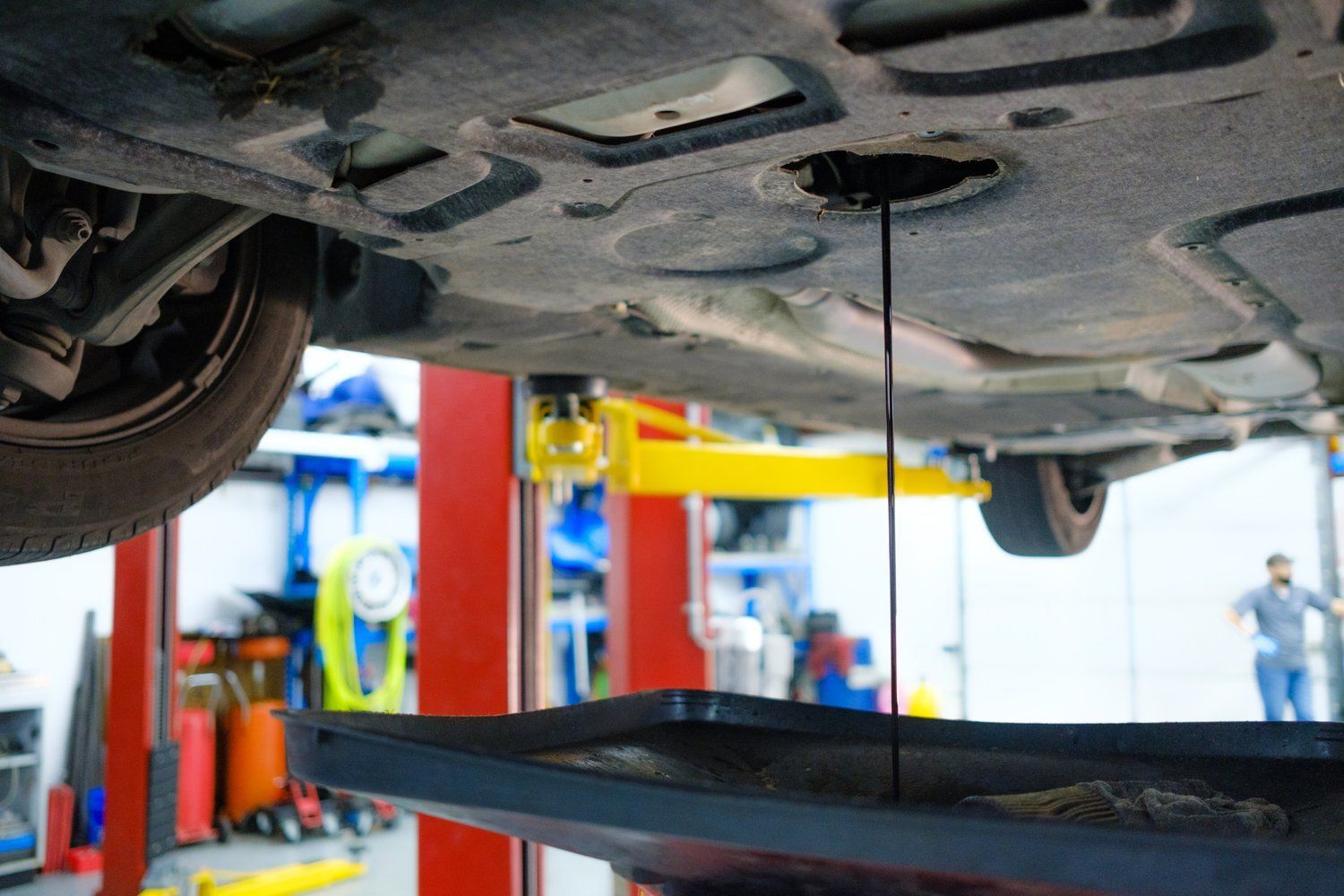
By C Deselle
•
February 12, 2025
Oil leaks are one of the most common issues BMW owners encounter. While these leaks might seem like minor inconveniences, ignoring them can lead to costly repairs and potentially serious damage to your engine. At TMJ Bimmers, we’ve seen and repaired countless BMW oil leaks, and three culprits consistently top the list: valve cover leaks, oil filter housing gasket leaks, and oil pan gasket leaks. Let’s break down these issues, their causes, and how they can be resolved. 1. Valve Cover Gasket Leak What It Is: The valve cover sits on top of your BMW’s engine and seals the valve train. Over time, the gasket that seals the valve cover becomes brittle and starts to leak. This is particularly common in models like the BMW 3 Series, 5 Series, and X Series vehicles, especially those with higher mileage. Signs of a Problem: A burning oil smell due to oil dripping onto the exhaust manifold. Visible oil leaks around the top of the engine. Check engine light (CEL) due to misfires caused by oil seeping into the spark plug wells. Engine running rough or noticeable performance issues. Causes: High engine temperatures causing gasket material to degrade. Normal wear and tear due to age and usage. Improper installation or over-tightening during previous repairs. Waiting too long between oil changes; Extended oil change intervals leading to sludge buildup, which accelerates wear. Potential Consequences : If left unchecked, a valve cover gasket leak can lead to more severe problems, such as damaged ignition coils or fouled spark plugs. This can result in misfires, reduced fuel efficiency, and costly repairs. How We Fix It : At TMJ Bimmers, we replace the valve cover gasket with a high-quality OEM or aftermarket part, ensuring proper torque specifications to prevent future leaks. We also inspect the valve cover itself for cracks, which can occur on older models. After the repair, we thoroughly clean the area to remove any residual oil. 2. Oil Filter Housing Gasket Leak What It Is : The oil filter housing gasket seals the connection between the oil filter housing and the engine block. Over time, this gasket can deteriorate, leading to leaks. This issue is particularly common in turbocharged BMW engines, such as the N54 and N55. Signs of a Problem: Oil pooling near the front of the engine. Unexplained decreased oil levels between oil changes. Visible oil stains on the engine or driveway. Unusual engine noises caused by low oil pressure. Causes : Exposure to heat and pressure, which breaks down gasket material over time. Age-related wear, especially in vehicles with over 60,000 miles. Poor-quality replacement gaskets from previous repairs. Waiting too long between oil changes; Delayed oil changes causing sludge buildup around the gasket. Potential Consequences: Ignoring an oil filter housing gasket leak can cause engine components to wear prematurely. It can also lead to low oil pressure, which in extreme cases, can result in engine failure. How We Fix It: We’ll replace the failing gasket and thoroughly clean the area to ensure no residual oil remains. During the repair, we’ll inspect nearby components like the oil cooler gasket, as it’s often affected in tandem. Additionally, we check for oil contamination in the cooling system, which can occur if the issue is left unresolved for too long. 3. Oil Pan Gasket Leak What It Is: The oil pan gasket seals the oil pan to the bottom of the engine. This gasket can fail, especially in older or high-mileage BMWs. Vehicles that experience frequent stop-and-go driving or those exposed to harsh road conditions are particularly susceptible. Signs of a Problem: Oil spots on your garage floor or driveway. Visible oil dripping from the underside of the car. Low oil level warning on the dashboard. Increased oil consumption requiring frequent top-offs. Causes: Damage from road debris or impacts causing stress on the oil pan. Long-term wear and exposure to heat, which weakens gasket material. Over-tightened bolts leading to gasket compression and failure. Improper installation during previous repairs. Potential Consequences : An untreated oil pan gasket leak can lead to low oil levels, causing inadequate lubrication of engine components. Over time, this can result in excessive wear, overheating, and potentially catastrophic engine damage. How We Fix It: Replacing an oil pan gasket involves removing the oil pan, cleaning the mating surfaces, and installing a new gasket. This process requires precision and care, as improper installation can lead to further leaks. While the oil pan is off, we inspect for sludge or debris to ensure the engine stays in optimal condition. We also replace the engine oil and filter as part of the service. Why Do BMWs Experience Oil Leaks? BMWs are known for their precision engineering and high-performance engines. However, these characteristics also make them more prone to oil leaks due to: Higher operating temperatures compared to many other vehicles. The use of synthetic oil, which can expose weaknesses in gaskets over time. Complex engine designs with multiple gaskets and seals. Regular maintenance and timely repairs are key to keeping your BMW in peak condition. Why Choose TMJ Bimmers for Your BMW Repairs? Oil leaks are more than just a nuisance—they can compromise your engine’s performance and longevity. At TMJ Bimmers, we specialize in BMW maintenance and repairs, offering: Expertise : Our team is trained to diagnose and repair common BMW issues efficiently. High-Quality Parts : We use OEM and premium aftermarket parts to ensure durability and reliability. Transparent Communication : We’ll walk you through the repair process and provide clear, upfront pricing. Comprehensive Inspections : Every repair includes a thorough inspection to identify and address potential issues before they escalate. If you suspect your BMW has an oil leak, don’t wait for the problem to worsen. Contact us today at 713.384.2273 or visit tmjbimmers.com to book your appointment at our Houston shop to have your vehicle inspected. Let’s keep your BMW running smoothly and leak-free for miles to come!
TMJ Bimmers Euro Auto Repair
Mon - Fri 8:00am - 6:00pm
Payment Options







Services
List of Services
-
Air Conditioning ServiceAir Conditioning Service
-
Alignment SpecialistAlignment Specialist
-
Battery ServicingBattery Servicing
-
Brake Inspection and ServiceBrake Inspection and Service
-
Check Engine Light ServicesCheck Engine Light Services
-
Complete Computer DiagnosticsComplete Computer Diagnostics
-
Coolant Systems RepairCoolant Systems Repair
-
Differential & Transfer Case ServicingDifferential & Transfer Case Servicing
-
Electrical System RepairElectrical System Repair
-
Engine Service and RepairEngine Service and Repair
-
Fuel System ServiceFuel System Service
-
Muffler & Exhaust System Repair and UpgradeMuffler & Exhaust System Repair and Upgrade
-
Oil ChangeOil Change
-
Performance & Transmission TuningPerformance & Transmission Tuning
-
Pre-Purchase InspectionsPre-Purchase Inspections
-
Road-Force Wheel BalancingRoad-Force Wheel Balancing
-
Steering and SuspensionsSteering and Suspensions
-
Timing Chain Issues & RepairsTiming Chain Issues & Repairs
-
Transmission Repair and ServiceTransmission Repair and Service
List of Services
-
Air Conditioning ServiceAir Conditioning Service
-
Alignment SpecialistAlignment Specialist
-
Battery ServicingBattery Servicing
-
Brake Inspection and ServiceBrake Inspection and Service
-
Check Engine Light ServicesCheck Engine Light Services
-
Complete Computer DiagnosticsComplete Computer Diagnostics
-
Coolant Systems RepairCoolant Systems Repair
-
Differential & Transfer Case ServicingDifferential & Transfer Case Servicing
-
Electrical System RepairElectrical System Repair
-
Engine Service and RepairEngine Service and Repair
-
Muffler & Exhaust System Repair and UpgradeMuffler & Exhaust System Repair and Upgrade
-
Fuel System ServiceFuel System Service
-
Oil ChangeOil Change
-
Performance & Transmission TuningPerformance & Transmission Tuning
-
Pre-Purchase InspectionsPre-Purchase Inspections
-
Road-Force Wheel BalancingRoad-Force Wheel Balancing
-
Steering and SuspensionsSteering and Suspensions
-
Timing Chain Issues & RepairsTiming Chain Issues & Repairs
-
Transmission Repair and ServiceTransmission Repair and Service
Services
List of Services
-
Air Conditioning ServiceAir Conditioning Service
-
Alignment SpecialistAlignment Specialist
-
Battery ServicingBattery Servicing
-
Brake Inspection and ServiceBrake Inspection and Service
-
Check Engine Light ServicesCheck Engine Light Services
-
Complete Computer DiagnosticsComplete Computer Diagnostics
-
Coolant Systems RepairCoolant Systems Repair
-
Differential & Transfer Case ServicingDifferential & Transfer Case Servicing
-
Electrical System RepairElectrical System Repair
-
Engine Service and RepairEngine Service and Repair
List of Services
-
Air Conditioning ServiceAir Conditioning Service
-
Alignment SpecialistAlignment Specialist
-
Battery ServicingBattery Servicing
-
Brake Inspection and ServiceBrake Inspection and Service
-
Check Engine Light ServicesCheck Engine Light Services
-
Complete Computer DiagnosticsComplete Computer Diagnostics
-
Coolant Systems RepairCoolant Systems Repair
-
Differential & Transfer Case ServicingDifferential & Transfer Case Servicing
-
Electrical System RepairElectrical System Repair
-
Engine Service and RepairEngine Service and Repair
-
Fuel System ServiceFuel System Service
-
Muffler & Exhaust System Repair and UpgradeMuffler & Exhaust System Repair and Upgrade
-
Oil ChangeOil Change
-
Performance & Transmission TuningPerformance & Transmission Tuning
-
Pre-Purchase InspectionsPre-Purchase Inspections
-
Road-Force Wheel BalancingRoad-Force Wheel Balancing
-
Steering and SuspensionsSteering and Suspensions
-
Timing Chain Issues & RepairsTiming Chain Issues & Repairs
-
Transmission Repair and ServiceTransmission Repair and Service
© 2024 TMJ Bimmers Euro Auto Repair. All Rights Reserved | Website managed by Shopgenie
